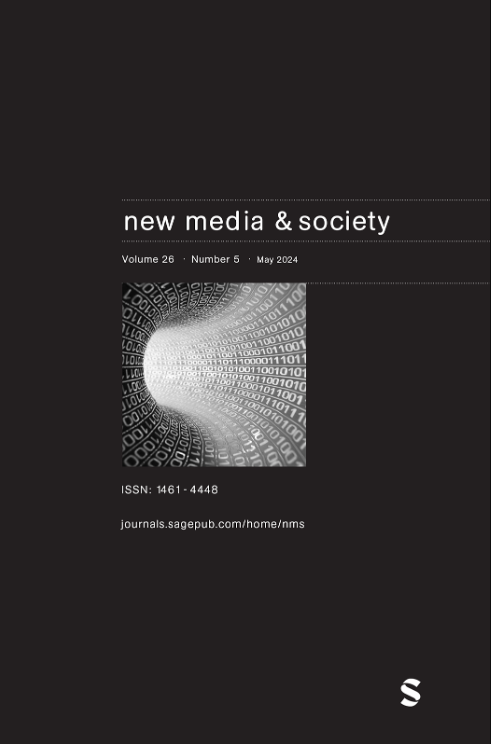Individual factors of expected and unexpected sexting and the subsequent feelings: A nationally representative study in adolescents
IF 4.3
1区 文学
Q1 COMMUNICATION
引用次数: 0
Abstract
Sexting is prevalent among adolescents, yet we lack an understanding of adolescents’ responses to its various forms and the factors that may drive those responses. This study adopts an integrative media effects framework and a nationally representative sample of Czech adolescents (11–16 years old,预期和意外性短信的个体因素及随后的感受:一项全国青少年代表性研究
性短信在青少年中很普遍,但我们对青少年对各种形式的性短信的反应以及可能导致这些反应的因素缺乏了解。本研究采用整合媒体效应框架,以捷克青少年(11-16岁,N = 2500,其中50%为女孩)为样本,调查:(1)抑郁、孤独、自尊、快乐、感觉寻求、年龄和性别与不同类型的性短信行为(预期和意外的收发性短信)之间的关系;(2)个体因素对不同类型性短信后幸福感和不安感的影响。虽然我们在三种性短信行为中发现了类似的个体因素与参与的关联模式,但我们没有发现结果之间的关联模式(即感觉快乐和沮丧)。我们的研究结果表明,性短信的结果必须作为个体行为来研究,而不是作为一种“性短信”行为。
本文章由计算机程序翻译,如有差异,请以英文原文为准。
求助全文
约1分钟内获得全文
求助全文
来源期刊

New Media & Society
COMMUNICATION-
CiteScore
12.70
自引率
8.00%
发文量
274
期刊介绍:
New Media & Society engages in critical discussions of the key issues arising from the scale and speed of new media development, drawing on a wide range of disciplinary perspectives and on both theoretical and empirical research. The journal includes contributions on: -the individual and the social, the cultural and the political dimensions of new media -the global and local dimensions of the relationship between media and social change -contemporary as well as historical developments -the implications and impacts of, as well as the determinants and obstacles to, media change the relationship between theory, policy and practice.
 求助内容:
求助内容: 应助结果提醒方式:
应助结果提醒方式:


